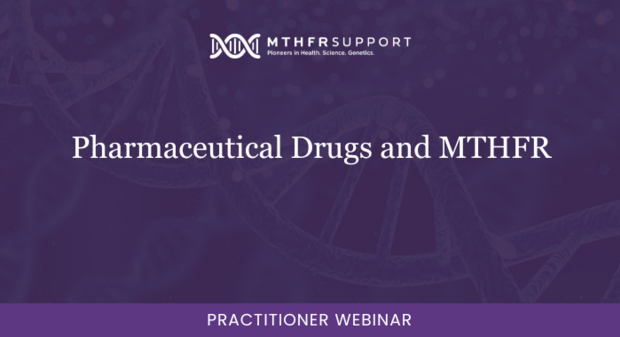Pharmaceutical Drugs and MTHFR
On Demand Webinar
In this webinar, we will explore the critical relationship between drugs and nutrients to better help you in clinical practice.
Join Carolyn Ledowsky, MTHFR expert and founder of MTHFR Support Australia on this Webinar focused on Pharmaceutical drugs and what we need to know about it.
These drugs may also alter epigenetic homeostasis by direct or indirect mechanisms. This may alter the expression of receptors, signalling molecules and other proteins. With chronic exposure, cells adapt and this can lead to a long-term alteration of an epigenetic network. Epigenetic effects of pharmaceuticals may be involved in the etiology of many disorders that have a profound effect on our health.
Here are some of the best bits we covered:
![]() How pharmaceutical Drugs are metabolized mostly via the CYP enzyme group.
How pharmaceutical Drugs are metabolized mostly via the CYP enzyme group.![]() How many pharmaceutical drugs are depleting key nutrients that are required for methylation?
How many pharmaceutical drugs are depleting key nutrients that are required for methylation?
Did you know that hydralazine (a vasodilator) used to treat hypertension and procainamide (an antiarrhythmic sodium channel blocker) inhibit DNA methyltransferase?
Valproic acid (valproate), an anti-epileptic and mood-stabilizing drug targets demethylation activity to demethylate DNA. It affects our liver function and has an effect on genes associated with lipid, fatty acids and steroid metabolism. It affects the glial cells in the brain and may cause memory loss and depression.
Drugs might also affect the synthesis and metabolism of methyl groups in the cell resulting in a decrease in SAMe levels. This will then have a knock-on effect and cause a decrease in all methyltransferase activity.
Many of our patients come to us on multiple pharmaceutical drugs. We need to be aware of the consequences of these drugs and ensure that key nutrients are supported and pathways affected monitored.

